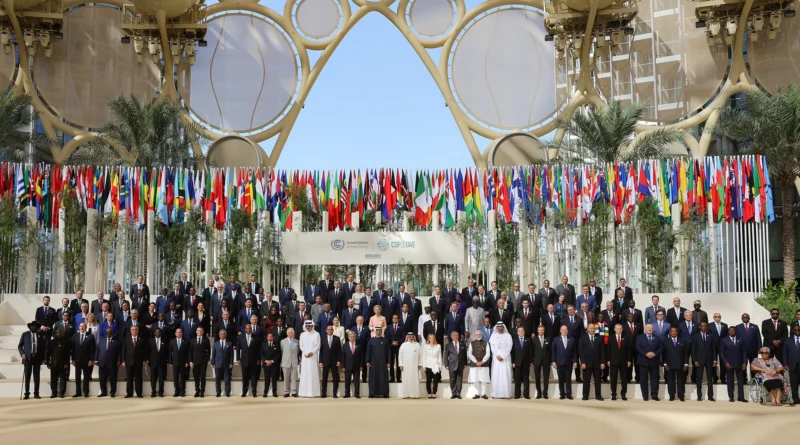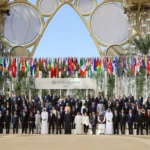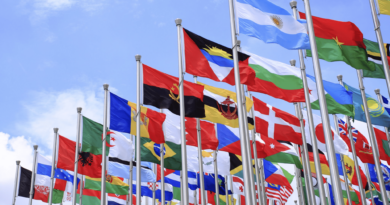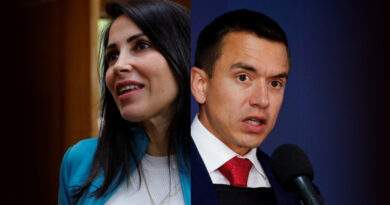Carbon colonialism, COP28 and climate crisis
AMY GOODMAN AND DENIS MOYNIHAN
Dubai
More than 100.000 people have attended the United Nations climate summit in Dubai, making it the largest in history. The goal of COP28, the 28th annual “Conference of the Parties” to the climate negotiations, is to stop catastrophic climate change. As the impacts of the climate emergency become more frequent and destructive, from droughts, hurricanes and typhoons, forest fires, melting polar ice caps, rising sea levels and more, problems with the negotiation process itself UN climate talks are magnified; Oil and gas producing nations and corporations that profit from fossil fuels dominate, delaying significant progress.
First example: COP28 is being held in the United Arab Emirates, the seventh oil-producing country on the planet, and the COP presidency is currently held by Sultan Ahmed Al Jaber, CEO of the state-owned Abu Dhabi National Oil Company of the UAE. .
The decision to have an oil boss lead climate change negotiations has been described as Orwellian. This week, The Guardian reported on comments Al Jaber made on November 21 during a live web event hosted by Mary Robinson, former president of Ireland and former UN special envoy on climate change.
Robinson asked Al Jaber if he would advocate not for a “phase-down” of fossil fuels, but for a complete “phase-out” that science says is necessary to limit global temperature rise above pre-industrial levels to 1,5 degrees Celsius (2,7 degrees Fahrenheit). Al Jaber responded forcefully,
“There is no science or any scenario that says that the progressive elimination of fossil fuels is what will allow us to reach 1,5… Show me a roadmap for a progressive elimination of fossil fuels that allows sustainable socioeconomic development, to unless they want to take the world back to the caves.”
The Guardian report came shortly after another from the Center for Climate Reporting based on leaked documents containing background reports on officials from several countries attending COP28, to help the UAE secure oil and gas deals with them.
The environmental coalition The Kick Big Polluters Out published an analysis that reveals that about 2.500 fossil fuel lobbyists have flooded COP28, outnumbering all but two national delegations.
“You wouldn't invite arms dealers to a peace conference,” said David Tong of Oil Change International. Pacific Climate Warrior Drue Slatter from Fiji added: “It's because they are afraid. “There are more of them [lobbyists] here because they know the fossil fuel era is coming to an end.”
While lobbyists enjoy virtually unlimited access to COP28, climate activists say they are finding it harder to get credentials than in previous years. Add to that the United Arab Emirates' authoritarian and strict ban on protests, and the UN climate summit looks more like what climate scientist Kevin Anderson wrote on social media: “a cabal of producers of oil, not a climate COP.”
Beyond the vast air-conditioned summit venue, the planet continues to warm. The European Union said Wednesday that this year will be the warmest on record. A scientific study on ecological tipping points by a team of 200 researchers warned: “If urgent action is not taken to stop the climate and ecological crisis, societies will be overwhelmed as the natural world falls apart.”
An “urgent action” being debated at COP28 is the development of so-called “carbon markets”. A consortium of organizations released a report, “The Africa Carbon Markets Initiative: A Wolf in Sheep's Clothing,” detailing the many problems these markets, which involve the buying and selling of carbon credits. When a government protects an area of forest, for example, it obtains credits that it can then sell. The buyer can then pollute elsewhere, offsetting the pollution with those credits.
“Carbon credits are nothing more than permits to pollute,” he said. Mohamed Adow, director of the climate think tank Power Shift Africa, on the Democracy Now!
Among the countries that are purchasing those rights to African lands in exchange for carbon credits is the host of COP28, the United Arab Emirates. To date, a private company called Blue Carbon, owned by Sheikh Ahmed bin Mohammed bin Rashid Al Maktoum of the ruling royal family of Dubai, has acquired rights to 10% of Liberia, 8% of Tanzania, 10% of Zambia and 20% of Zimbabwe, plus “millions of hectares” in Kenya. Although these agreements could protect undeveloped lands, they could also force indigenous peoples to abandon their lands or lose their rights to use them.
“Sixty years ago, African countries achieved their independence. We were able to drive the colonizers from our lands. What they are doing now is basically introducing this new form of colonialism,” said Mohamed Adow.
Carbon colonialism only guarantees worsening climate disasters. Science and climate activists around the world agree: what is needed is a rapid, complete, fair and funded phase-out of all fossil fuels.









